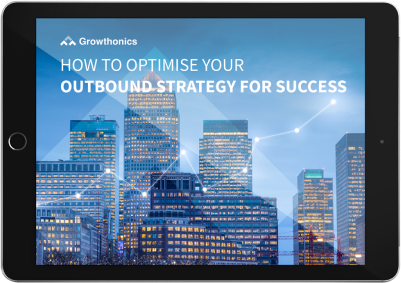Sales Playbook
Framework Essentials
John O'Shea
The strength of your sales troops has a direct impact on your bottom line. Therefore, you must ensure your sales reps are adequately equipped with a proven sales process playbook that guarantees results. Unfortunately, many sales managers assume a sales playbook is a series of sales sheets and call scripts.
In this article, we take you through the basics of a sales playbook, the benefits of having one and what makes the sales playbook framework.
What is a sales playbook?
A sales playbook is a document detailing your company’s sales strategy and tactics drawn from previous success. A good sales playbook helps sales reps navigate even the toughest parts of the sale process by providing tips on overcoming obstacles. Your sales playbook should include all the resources your sales reps will need to take prospects and existing customers through the sales cycle to close more deals – scripts for sales calls, buyer personas, sales tools and discovery questions among other things.
When you have your own sales playbook, it’s easier to streamline your sales processes, tackle challenges, solidify your branding, reduce the onboarding time for new hires and drive productivity gains with every customer interaction. Yet, getting the right sales playbook framework can be confusing.
What then, is a sales playbook framework?
This is simply the structure on how to put together your sales playbooks ensuring the process is scalable and repeatable.
What are the benefits of having a sales playbook framework?
Having a sales playbook framework will ensure your wins aren’t random and losses are traceable to where things started going wrong. A sales playbook gives insight into your sales enablement strategy.
Here are some benefits you’ll enjoy when you have a framework for building a sales playbook for your organisation:
1. Reduced onboarding time
When you have a sales playbook framework, you don’t have to worry about your new hires because you’re certain they’ll be adequately equipped for faster onboarding. This means they’ll take a shorter time to start closing deals. When new hires have access to the resources they need to sell better, they feel more empowered.
2. Increase in revenue
According to a research conducted by Aberdeen, companies that leverage a sales playbook often record a 3.9% increase in their deal size. Conversely, those that don’t use a playbook had a 2.8% increase in deals won.
3. Standardised practice for sales
Having a sales playbook that guides your sales and marketing teams means you can easily ensure a coherent narrative all through the sales process. Your reps will be leveraging best practices only while at the same time maintaining a consistent message.
4. Sets the pace for scaling
When your sales and marketing departments have a proven foundation for teamwork and cross collaboration with other departments, you’re able to scale and grow without leaving anyone behind.
5. Better feedback loops
77% of sales people underscore the importance of selling collaboratively with the other departments. This is according to findings of research by Salesforce. 73% of sales teams from the same study agree that working collaboratively with other departments is pivotal to their sales process.
So, what should your sales playbook template include?
5. Expand to new territories
You need to identify new territories where your brand can expand and grow. Think about the new areas where you can prospect or open stores. You could also consider franchising as an expansion strategy.
8 Must Have Sales Playbook Frameworks Essentials
A successful sales playbook template should cover the following:
Company overview
It’s critical that you introduce your sales reps to key aspects of who you are as an organisation. Be sure to include your company’s history, mission and values. You also must lay out your sales team structure, clearly stating where your reps fall within the hierarchy.
Services and products
Your salespeople will not succeed in their job if they don’t know the products or services they’re selling. When your sales reps know about your products, they’ll be confident.
Buyer persona
Buyer personas help you to clearly tell your reps who they’re targeting. You need to provide adequate and accurate information and description of your perfect clients.
Sales process
This is the heart of your playbook as you get to take your sales reps through your messaging and sales process. From finding to qualifying leads and eventually closing the deal. When your sales reps are equipped with the sales process, you minimise inefficiencies and get maximum ROI.
The use of CRM
Here, you need to include everything that’ll help you get the most from the CRM. When all your team members know what they can achieve with the CRM, you are guaranteed success. Having a chart showing who reports to whom will help new hires to understand how well the sales organisation fits together.
Sales methodology
If you practice a specific sales method, make sure you introduce your sales reps to it. You need to introduce your sales reps to it so that they know what to expect in the initial stages and from the long term training.
Measuring activities and outcomes
Make your expectations of sales reps clear. Your reps need to know what you expect from them individually and at team level.
Commission and compensation
Compensation packages for your sales reps will vary depending on the company. Some are complex while others are simple.
How to create a sales playbook framework
It’s not enough to know the sales playbook framework essentials, you also need to know how to build the framework. The sales playbook creation process is simple:
1. Identify a team that will build the framework, usually drawn from the relevant departments – produce development, sales, marketing, C-suite and HR. This team should have the face of your company.
2. Talk to your sales reps with the aim of learning about their failures and successes including key performance indicators. Then compile the methods that work. You’ll be surprised to find that probably your team has an unofficial playbook already.
3. Ensure all buyer’s objections are being met by aligning those objections with your sales process. While you can’t stop objections from leads, you can ensure sales reps are prepared with those objections so that they’re all moving deals forward.
4. Check current sales trends. You’re dealing with informed buyers with access to so much information including your competition. Your sales playbook should go into detail in a way that enables your sales reps to personalise your pitch for each prospect/customer.
Conclusion
When you have the resources, acquire your competitor or small business within your industry. The idea here is so you can broaden your offerings and customer base.
9. Run a promotional campaign for boosting loyalty
A sales playbook framework helps you to amplify processes and techniques you’ve tried and tested to ensure that your sales reps and closing deals with ease.
To learn more about our Lead Generation services book a call today.
Subscribe to our mailing list
Find out how we can help
Our Offices
China Works,
Black Prince Road, Vauxhall,
London, SE1 7SJ
GROWTHONICS © 2022 ALL RIGHTS RESERVED






